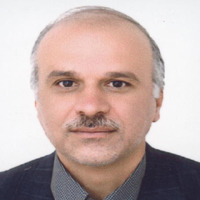Sociological Analysis of the Impact of the Waqf Institution on Development in Mashhad (Comparative-Historical Study of Timurid, Safavid and Pahlavi Periods)
Author(s):
Article Type:
Research/Original Article (دارای رتبه معتبر)
Abstract:
Adopting a comparative-historical approach, this study examines the impact of Waqf institution on development in Mashhad and the factors that weaken or strengthen this impact in the three historical periods of Timurid, Safavid and Pahlavi. In the theoretical framework, while referring to the theories of functionalism and structuralism, by using the new institutionalist in economic sociology approach, a three-level causal model is presented to examine the factors that weaken or strengthen the impact of waqf institution on development. This model was tested by using narrative analysis, Mills Methods of agreement and dispute at two levels within the case and between the cases. The results indicate that strengthening or weakening the impact of waqf institution on development in Mashhad in the studied periods depend on the institutional environment of waqf, the performance of endowment trustees and endowment trustee organizations in maintaining and developing endowments and intentions and motivations of waqifs. In the Timurid and Safavid periods, due to the existence of an institutional environment supporting waqf, the effective performance of waqf trustees and organizations and strengthening the spiritual motivations of waqifs and further influencing their intentions, the impact of waqf institution on development of Mashhad has also been strengthened, whereas, in the Pahlavi period, due to the lack of an institutional environment supporting the endowment, malfunction of endowment trustees and endowment trustee organizations and weakening the spiritual motivations of the waqifs and reducing the effectiveness of their intentions, this effect has been weakened.
Keywords:
Language:
Persian
Published:
Journal of Social Sciences, Volume:19 Issue: 1, 2023
Pages:
1 to 32
https://magiran.com/p2530948
مقالات دیگری از این نویسنده (گان)
-
A Critical Analysis of Michel Foucault's Genealogy of "Body Management" from an Islamic Thought Perspective, with Emphasis on Women and Gender Issues
Mohammadreza Ghaemi Nik, Seyede Jamile Hashemnia *, Mohsen Noghani
The Quarterly Journal of Islam and Social Studies, -
Network-based Job Search Modelling:Prioritizing Types of Scientific Communication and Information Networks Based on Access to Job Information
Mahsa Sadeghinezhad, Mohsen Noghani Dokht Bahmani *, Hossein Akbari
Journal of Social Sciences, -
Analysis of Economic Sanctions against Iran as a Social Reality in the Digital Space
Masoud Zare Mehrjardy, *, Alireza Nazarian, Mohsen Noghani
Journal of Applied Sociology the University of Isfahan, -
Discourse analysis of the place of development in the activism of the justice seeking students' movement (JSSM)
Hoda Davari, Mahdi Kermani *, Ahmadreza Asgharpour Masouleh, Rohollah Eslami
Journal of Economic Sociology and Development, -
The Role of the Waqf Institution in the Development Process: New Institutionalism Approach
, Hossein Behravan *, Mohsen Noghani Dokht Bahmani, Ahmad Reza Asgharpour Masouleh
Journal of Islam and Social Sciences,



